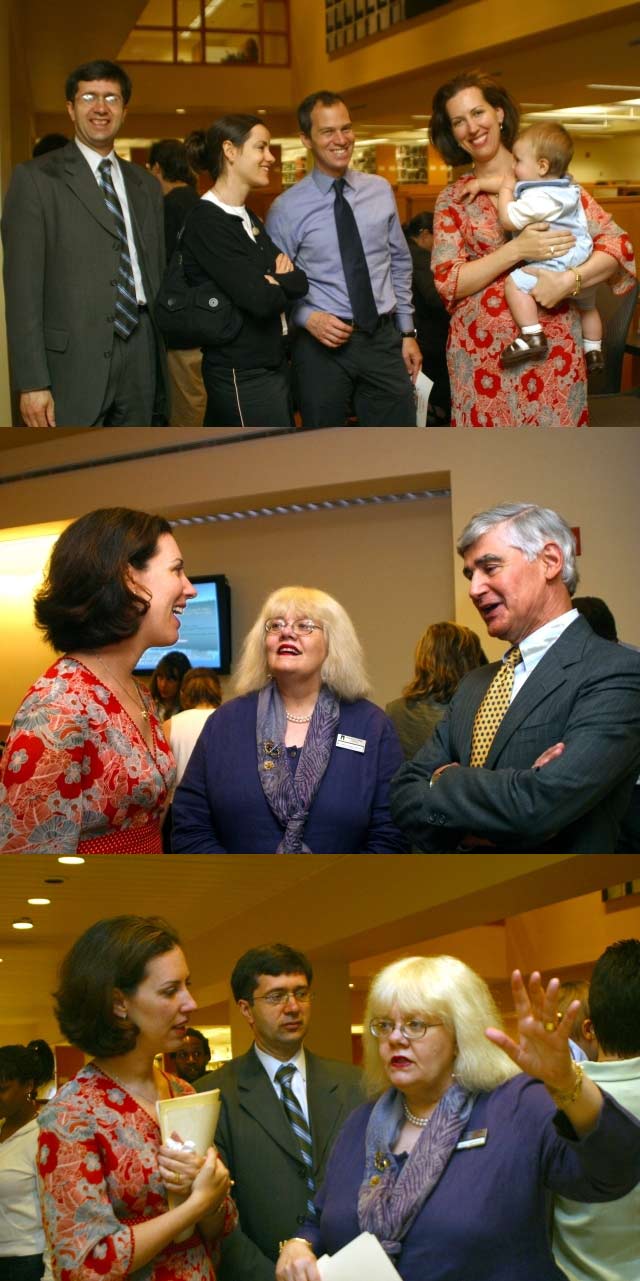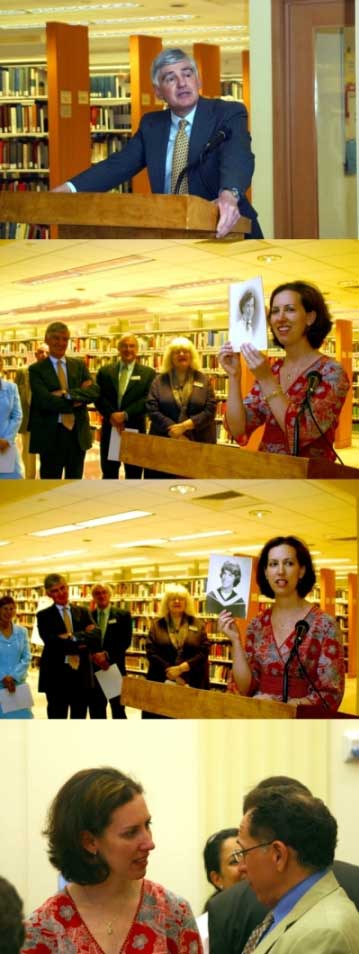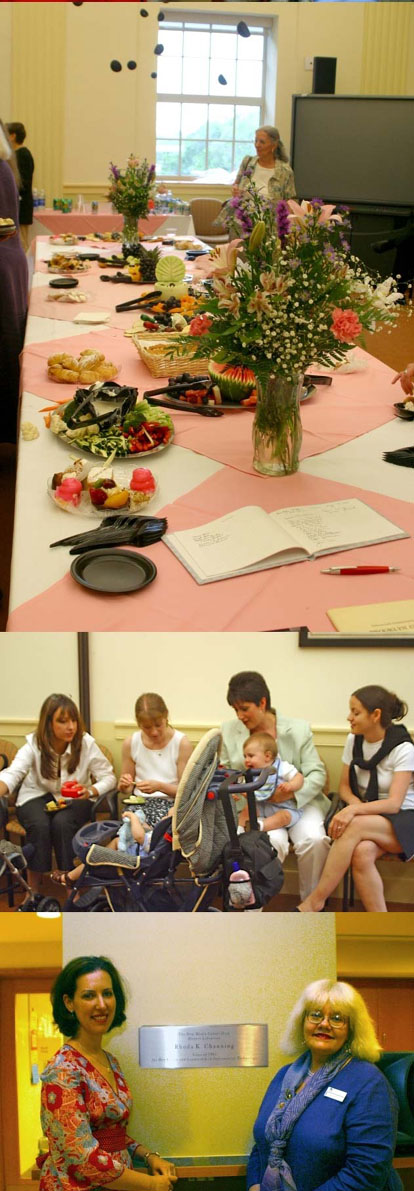|
Good afternoon. It is wonderful to see so many of you here today.
Thank you for inviting me to share with you some insight into Rhoda Channing and her remarkable leadership.
My name is
Debbie Nolan Lambert. I am acting director of the Z. Smith Reynolds
Library at Wake Forest University.
Rhoda hired me in 1997 to be her assistant director, and over the course of time
she became my mentor and close friend.
From my first
day on the job at Wake Forest, it
was clear that working with Rhoda would be nothing like any other
professional experience… I never saw Rhoda that day! Intentional
or not, the message was clear – Rhoda was a leader, “out
there,” representing the library and the university to the wider
world. And my job was to take initiative, identify issues, and steer
the course that she charted for the library.
That day was
the first of many lessons in leadership that Rhoda provided.
Honest,
optimistic and responsible described Rhoda. Her hallmarks were high
standards, high expectations and high achievement. She had the
confidence, open mind and imagination to embrace ambiguities and welcome
change.
Rhoda never
preached. She led by example, from the mundane - making ice cubes when
on kitchen duty—to the highest roles in regional, national and
international associations such as the Association of College and Research
Libraries and OCLC, the Online Computer Library Center.
Rhoda was a
natural leader. Her positional authority was secondary. Her
leadership stemmed from her dedication to the mission of the library and the
university. She did not set herself above others. She did not ask
or expect staff to do anything that she wouldn’t do. She provided
opportunities for individuals to explore their talents and expand their
horizons.
Performance and
productivity—through service, collections, technology and management
were measured in terms of critical success factors—all to ensure
student scholarship and faculty success.
Rhoda was
demanding—in an unspoken way that evoked commitment, determination and
excellence. Challenges were to be met and obstacles overcome.
Rhoda trusted her staff to do quality work—whether in archives or
special collections or reference or instructional media. As Samuel
Johnson said, “self confidence is the first requisite of great
undertakings.” Rhoda knew this, and she instilled confidence
through delegation, by reducing the management hierarchy, and by expecting
decision-making to occur at the point closest to the end user.
She embodied
the lifelong learner and knowledge seeker. Her insatiable thirst for
information and understanding translated to a true enjoyment of
teaching. She was comfortable with the classics and on top of
technology, learning Italian for her stint as resident director at Casa Artom in Venice, and
teaching information access in the 21st century to this current generation of
students.
Shortly before
her death, Rhoda was named a Fulbright Senior Specialist for the Council for
International Exchange of Scholars. Her belief in the maxim of Oliver
Wendell Holmes, Sr. that “ones mind stretched to a new idea never goes
back to its original dimensions” lives on through the Rhoda K. Channing Memorial Fund for professional development at
the Z. Smith Reynolds Library at Wake Forest University.
You are correct
in concluding that Rhoda was admired, respected and held in great
esteem. She trusted, developed and invested in so many people.
Rhoda shared her experience, example and encouragement. Countless
colleagues have recalled, ‘Rhoda was my mentor.”
“Rhoda’s support gave me the confidence to move ahead.”
“Rhoda taught me to laugh at myself.” “Rhoda helped
shape my concept of what a strong woman can accomplish in terms of leadership
and warmth.”
Rhoda’s
legacy lies in what she accomplished, what she inspired and what she expects
of us—to carry on, as unique individuals, marshalling our talents,
efforts and energies to continue our mission of enriching the lives of
others, no matter what our chosen path may be.
|


